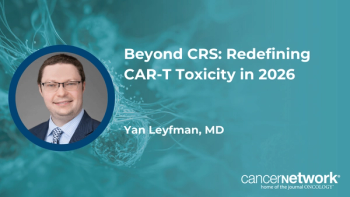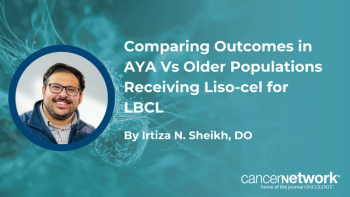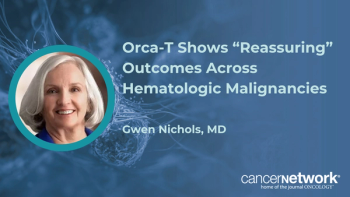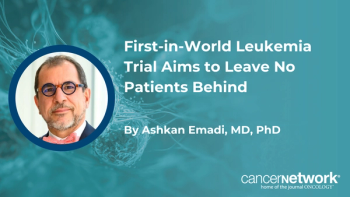
Study: Enzyme Plays Important Role in CML Stem Cell Reprogramming
Researchers have identified an enzyme that plays an important role in the reprogramming of malignant progenitor cells in chronic myeloid leukemia. The enzyme, ADAR1, could represent a target for selecting and eradicating leukemia stem cells.
Researchers have identified an enzyme that plays an important role in the reprogramming of malignant progenitor cells in chronic myeloid leukemia (CML). The enzyme, adenosine deaminase acting on RNA 1 (ADAR1), could represent a target for selecting and eradicating leukemia stem cells, according to a paper
A small, hypolobated megakaryocyte in a bone marrow aspirate, typical of CML; source: Difu Wu, Wikimedia Commons
“Although the [chronic phase] of CML often can be controlled for long periods of time with standard TKI therapies, subsequent genetic and epigenetic alterations promote progenitor expansion and the generation of self-renewing leukemia stem cells that fuel disease progression and blast crisis transformation along with TKI resistance,” wrote study senior author Catriona H. M. Jamieson, MD, PhD, of the University of California, San Diego, and colleagues.
It is becoming more and more evident that RNA editing enzymes play a role in that promotion of self-renewing CML cells. In this study, researchers used whole-transcriptome sequencing of normal cells, as well as chronic phase and blast phase CML cells, to look for sources for reprogramming of progenitor cells.
They found that increased expression of the ADAR1 p150 isoform in blast crisis CML could be related to inflammatory pathway activation, including cytokines and tumor necrosis factors.
The investigators also examined whether limiting expression of ADAR1 could affect the self-renewal capacity of leukemia stem cells. They transplanted human CML cells with ADAR1 expression knocked down into mice and compared with control cells; they found an impaired ability to self-renew in the leukemia stem cells. “Although leukemic burden was not diminished significantly, the [leukemia stem cell] self-renewal capacity was irrevocably reduced by ADAR1 knockdown,” the authors wrote.
Together, these data suggest that inflammatory mediator-driven expression of ADAR1 contributes to CML progression.
In a
“ADAR1 is an enzyme that we may be able to specifically target with a small molecule inhibitor, an approach we have already used effectively with other inhibitors,” Dr. Jamieson said. “If we can block the capacity of leukemia stem cells to use ADAR1, if we can knock down that pathway, maybe we can put stem cells back on the right track and stop malignant cloning.”
Newsletter
Stay up to date on recent advances in the multidisciplinary approach to cancer.














































